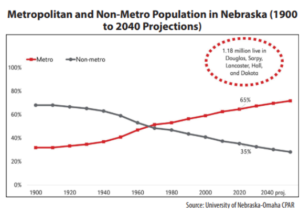11
Beginning this weekend, 11 state senators will hold town hall meetings in Omaha and Lincoln to hear feedback from the community on the Governor’s recently-released Nebraska Plan and any other topics related to the pending special session. For residents of Omaha and Lincoln, this will be a great opportunity ensure to your views are heard by state decision-makers. If you are unable to attend, you can submit feedback via this form.
Omaha
Sunday July 21
1:00pm-3:00pm at the Thompson Alumni Center, 6705 Dodge Street
Lincoln
Monday, July 22
5:00pm – 7:00pm at the Wick Alumni Center, 1520 R Street
$18,595
The special session of the Nebraska Legislature slated to begin next Thursday will be among the costliest in state history, according to estimates from the Legislative Fiscal Office. Their estimates, which did not factor in fluctuations in staff overtime, security costs or per diem rates for senators traveling to the capitol, put the cost of a 7-day session at $18,595 per day. The actual expenditures are likely to eclipse that figure, as legislative staff has already been asked to report on Saturday following the first day of the special session, which will generate overtime expenses.
Whether the governor will be able to find 33 allies to overcome an inevitable filibuster remains to be seen, with many lawmakers speaking publicly about their objections to the plan outlined by the governor this week.
$1.4 billion
The state of Arizona faces a $1.4 billion deficit in their budget, largely due to exorbitant spending on a school voucher program. The program, which is accessible to any family, no matter how affluent, is expected to cost the state $429 million this year, up from an original estimate of $65 million.
Coupled with an aggressive income tax cut passed by the Arizona legislature in 2021, which offers outsized benefits for wealthy Arizonans, the state grappled with the deficit during their most recent legislative session, passing a budget in June that canceled an investment in a critical water infrastructure project, K-12 education supplies like books and computers, and maintenance projects for air conditioning at the state prisons, where temperatures commonly reach triple digits. The budget also required Arizona lawmakers to sweep a variety of cash funds, similar to the approach taken by Nebraska lawmakers in the 2023 legislative session.
25.9%

$1.18 Billion
This week, the Nebraska Department of Revenue released the General Fund Tax receipt reports for the last fiscal year and held a meeting of the Tax Rate Review Committee. Together, they provide a troubling outlook for the current fiscal year with regards to the state’s ability to meet its budgetary commitments. The state projects a $1.18 billion decrease in state revenues without a clear plan to fill the gap, largely due to the income tax cuts passed in 2023 under LB 754. Earlier this year, in anticipation of the income tax rollbacks, the Legislature felt it needed to raid various cash funds to pay for normal operating expenses.


